
Salesian missionaries in Zambia are responding to the urgent needs of children in crisis. The HIV/AIDS epidemic has taken a devastating toll on Zambia’s children. There are 1.2 million children classified as orphaned and vulnerable by UNICEF, and these children struggle to find education, basic services and hope for their future.
Over the past three decades, incomes in Zambia have fallen steadily. Poverty is widespread with 64% of the total population living below the poverty line and rising to 80% in rural areas. These families do not have adequate income to meet their basic food requirements.
In Zambia, nearly 20,000 homes are headed by children who have lost their parents in the HIV/AIDS epidemic. These young innocent victims are desperate for adult support as well as the basics that all children deserve. For these children, a chance to go to school opens a world of possibilities.
The Salesian-run City of Hope was established to meet the needs of youth and their families living in the most severe poverty in Lusaka. The vast majority of children attending City of Hope programs are those who have been abused, live on the streets or are victims of child trafficking.
Currently, there are more than 800 students enrolled in the City of Hope’s Open Community School which serves those suffering from malnutrition, lack of education and family deprivation. Basic education is offered to youth between the ages of 9 and 17. Primary school classes make up the first four years after which students take the government’s grade seven examinations. Most City of Hope students do not have the opportunity to attend other schools because of a lack of financial means.
The City of Hope also offers a shelter that is home to at-risk girls referred through the social welfare system, the police and other institutions and organizations. Many have been orphaned and have nowhere else to go. There are currently 36 girls who live at the shelter ranging in age from 7 to 22 years. The shelter is not an orphanage but rather a safe place for girls to stay while they gain an education and make the transition either to living with family or to a more independent life. To date, more than 150 girls have received services through the City of Hope’s shelter.
In addition, young children in the village of Lufubu will have a new Salesian Early Childhood Education Center thanks to Salesian Missions donors. Many preschool children in the village are left unattended during the day and roam around aimlessly. The Early Childhood Education Center will provide a safe, healthy learning environment for more than 100 preschool aged children.
Donor funding is supporting the renovation of two existing classrooms and equipping them with age-appropriate furniture, supplies and learning materials to provide a strong foundation for future education. Early preschool education provides the opportunity for these young children to access a school environment and learn early education fundamentals before primary school starts.
The Salesian secondary school in the Zatti community in Kabwe was able to add four new classrooms thanks to donor funding. This expansion will benefit the 350 students who attend the school.
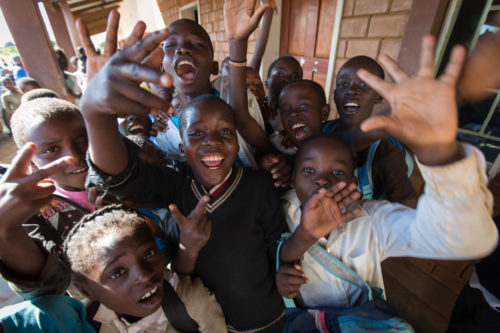
Providing a better education to students includes providing the best support and training possible for teachers. In Zambia, the Don Bosco Secondary School helped launch the innovative fast track teacher-training program, in collaboration with St. Eugene University and the Zambia Ministry of Education. Through this program, the Ministry of Education is upgrading the knowledge and certification of some 2,000 teachers as a way of improving education standards in the country.
In order to address the shortage of qualified teachers in schools, the teacher-training program will enable teachers on government sponsorship to upgrade from certificate to diploma and from diploma to degree level. St. Eugene University will provide the advanced degree education to teachers, many who are graduating from Salesian schools.
Salesian missionaries in Chingola have converted an older technical training institute into a full Don Bosco Technical Secondary School thanks to donor funding from Salesian Missions. The funding was used for construction projects to build new classrooms and repair bathrooms and other spaces. The new school offers a home economics lab, science labs, a library and a new four-pillar car lift for the automotive department. Funding was also used to furnish the rooms with necessary items. The science lab has concrete workstations and a water system with taps and lab sinks, while the home economics lab was able to add a refrigerator and other items.
The Don Bosco Technical Secondary School has had a dramatic increase in the number of youth getting an education. Salesians report that previously there were an average of 47 students at the college each year. Enrollment is now up and 1,094 students are gaining their education — 432 students in the college and 662 students in the technical secondary education school.
Donors are giving children in Zambia their first opportunity to access education, use colored pencils, paint or play with a ball through the Distance Adoption program, which provides sponsorship for children to go to school.
Since 1982, Salesian missionaries have been working with poor youth and their families in Kazembe, where many families have no money for food and are unable to pay the monthly fees or buy uniforms for their children to go to school. Thanks to donors, these children now have the opportunity to learn to read and write, learn English and gain the skills needed to help them reach their full potential.
Josephine is just one example of a child helped through this Distance Adoption program. Now living with her parents and siblings, she had at one point been sold by her parents for $30. In Zambia, parents who sell their children may live in extreme poverty and feel like they have little choice. With the support of the Distance Adoption program, Josephine now has the ability to continue school. Although she lives close to an hour away from the Salesian House and must walk to and from school, she always arrives eager and ready to learn.
Poverty is widespread in Zambia with 64% of the total population living below the poverty line. For those living in rural areas, the poverty rate rises to 80%, according to UNICEF. Over the past three decades, incomes in Zambia have fallen steadily and people do not have enough money to meet basic needs such as shelter, nutritious food and medical care.
Youth and their families living in the most severe poverty in Lusaka can find a new beginning at the City of Hope. The vast majority of children attending City of Hope programs have been abused, lived on the streets or are victims of child trafficking.
One program is the City of Hope’s Open Community School. For the more than 800 students enrolled, the school provides an opportunity to get an education they could not afford anywhere else. The school serves vulnerable students suffering from malnutrition, lack of education and family deprivation. Basic education is offered to youth between the ages of 9 and 17. Primary school classes make up the first four years after which students take the government’s grade seven examinations.
The City of Hope offers a shelter that is home to at-risk girls to stay while they gain an education and make the transition either to living with family or to a more independent life. To date, more than 150 girls have received services through the City of Hope’s shelter. Many have been orphaned and have nowhere else to go, and have been referred through the social welfare system, the police and other institutions and organizations. Through the City of Hope, these girls and young women are able to lay a foundation for a better future.
The healing power of play came to more than 140,000 youth in Salesian programs through a donation from One World Fútbol. The organization’s donation of 5,200 nearly indestructible soccer balls benefited youth at Salesian orphanages, youth centers, schools (particularly those in rural areas) and some nursery schools and kindergartens.
The generous donation created new opportunities for teaching valuable skills to youth both on and off the field. Recreation and sports activities offer unlimited opportunities for growth by simultaneously developing leadership, teamwork and social skills.
“Since receiving the fútbols, we have seen a lot of positive changes and improvements in the youth that benefited from this donation,” says Father Louis Malama, provincial economer of the Salesians of Don Bosco Providence in Zambia. “Youth are very happy, and participation in school and sports activities has improved. In our youth centers, the number of boys and girls participating in the program has also increased due to the sports and games that have attracted many of them that had not been involved before.”
In addition, Salesians in Zambia formed partnerships with local organizations such as the International Training Center, Olympic Youth Center and the Kasisi and Makeni Orphanages. The donation was shared with the poor youth in these programs allowing them to expand their recreation and sports activities and learn more about teamwork. Salesians were also able to share the donation with some of Zambia’s government-run schools.
In 2019, youth in Zambia had an opportunity for cultural exchange through arts programming thanks to funding Salesian Missions received from the United States Embassy in Lusaka. The “Amplifying the Arts” project empowered vulnerable youth to tell their stories through American-inspired creative expression and to celebrate the diversity and unity of the human experience. The project also aimed to strengthen cultural ties between the U.S. and Zambia.
The project was launched in November 2019 with a talent identification event held by Bosco Youth Reach Out as an invitation for youth in the surrounding areas to participate. The event attracted more than 1,000 spectators and had 150 children and youth perform. Of the 150 performers, 120 youth, aged 15-25, were selected to attend the training and participate in the project.
Don Bosco Agriculture Training Center, located in Lufubu, has access to clean water thanks to donor funding from the Salesian Missions “Clean Water Initiative.” The water project brought clean water for more than 90 students and teaching staff and will be used on four hectares of land for farming. The project provided the funding for the construction of a water stand with capacity for eight large tanks to store 10,600 gallons of water, a solar pump, solar panels, pipes, connectors, garden taps and labor costs. Funding was also used to purchase seeds and gardening tools. The water and seeds are enabling second-year students to start cultivating small fields as part of their training.
In addition, St. James Parish in Chimese has clean water thanks to donor funding from the Salesian Missions “Clean Water Initiative,” which provided a new borehole, 22-foot-high tank stand, solar pump and water reticulation network within the parish premises. Chimese is a large village of approximately 6,500 people. Most families own a shallow well that dries up each October to January. The new water project drilled a hole deep enough to provide water year-round.
More than 300 residents of the Kamakuti village in Kabwe have clean, fresh water thanks to the Salesian Missions “Clean Water Initiative.” The project provided funding for a new borewell, water tank and pump in the village, which hosts one of the Salesian St. Mary’s Parish village chapels. The villages lack basic services including water, proper sanitation and transportation. There is also a lack of education facilities for children, and people travel long distances to access a health center. This is the first time this community has clean fresh water. Women and children will no longer have to travel a distance to bring back water to the village.
Hunger is a daily reality for many children in Zambia, with 65% of women in female headed households choosing to reduce the number of family meals per day as their only coping mechanism for poverty, according to The Living Conditions Monitoring Survey cited by UNICEF. UNICEF also notes that the continued deprivation of nutritious food increases the likelihood children in these households will suffer from physical and cognitive impairment.
Critical Salesian-run feeding programs help at-risk youth, the elderly and those who are sick receive better nutrition with fortified rice-meals. The meals are provided through an ongoing partnership between Salesian Missions and Rise Against Hunger, an international relief organization that provides food and life‐changing aid to the world’s most vulnerable.
Salesian programs across Zambia have received thousands of food packages that are distributed to people in villages, shantytowns and poor rural areas who might otherwise go hungry. Meals are also distributed in schools to help youth be better prepared for their studies. In some centers and schools, the fortified rice has been given a nickname “vi musanina,” which in the local language means “you will gain weight or you will grow healthy.”
The Salesian-run City of Hope feeds between 4,000 and 5,000 children a day. For some students, the meals they receive at the City of Hope centers are the only meals they have each day. The food aid also gives a powerful incentive for families to send their children to school. Without the donation, the City of Hope would be forced to cut back its important feeding program to offer meals only three times per week.
In 2019, more than 2,900 youth, families, grandmothers, and orphaned children had access to better nutrition thanks to a partnership between Salesian Missions and Feed My Starving Children, a nonprofit Christian organization committed to “feeding God’s children hungry in body and spirit.” The rice-meal donation was provided and distributed by Salesian Sisters who operate the City of Hope in the capital city of Lusaka. The City of Hope received three shipments of 40-foot containers of rice-meals in 2019.
In 2020, Mary Help of Christians in Kasama was able to provide meals to youth in need thanks to a partnership between Salesian Missions and Feed My Starving Children, a nonprofit Christian organization committed to “feeding God’s children hungry in body and spirit.” The rice-meal donation was provided and distributed to the Sisters of the Child Jesus who are working in health centers and have communities with orphans, blind children and albinos. The donation was also shared with the youth and children who come to the Mary Help of Christians oratory and parish. The food arrived in May and become a lifeline in the face of the global pandemic.
Youth with the City of Hope in Lusaka have soap and furniture thanks to donations received by Salesian Missions. The soap donation was provided by Eco-Soap Bank, a humanitarian nonprofit organization working to save, sanitize and supply recycled soap with hygiene education for the developing world. The furniture donation was provided by IRN (the Reuse Network), which matches surplus items with organizations and people who need them.
Salesian missionaries also develop farms and teach agriculture skills. In the poor, remote community of Lufubu, residents traditionally relied on fishing for sustenance. But when the lakes became over-fished, the government of Zambia looked to the Salesian missionaries to help combat hunger while preserving the environment.
Salesian missionaries responded by starting an agricultural school. Boarding students from neighboring villages come and learn agricultural techniques to take back to enhance nutritional levels in their home communities. The school has a working farm on which the students can engage in practical exercises.
Looking to the future, Salesian missionaries hope to transform the curriculum and educational experience of the students with Internet access that could also provide online access to the entire community.
In addition, Salesian missionaries working in the Makululu Settlement in Kabwe were able to purchase close to 25 acres of land and develop a farm thanks to donor funding from Salesian Missions. Missionaries have developed the farm near the Don Bosco Children Home so that the food from the farm will be a source of food for the children and local community. The farm itself will also be utilized as an agricultural training center. The Don Bosco Children Home transforms the lives of street children by providing shelter, education, and agricultural training to help break the cycle of poverty and provide opportunities for financial independence.
In 2022, Don Bosco Youth Center in Kazembe launched a goat-rearing project thanks to donor funding. The funding provided 28 young goats and the construction of a small barn to shelter them. Don Bosco Youth Center has a large parish with 6,000 parishioners with 30 outstations, as well as a carpentry school with a boarding house for 20 students. More than 1,000 youth attend programs at the youth center each day.
From Zambia

From Zambia
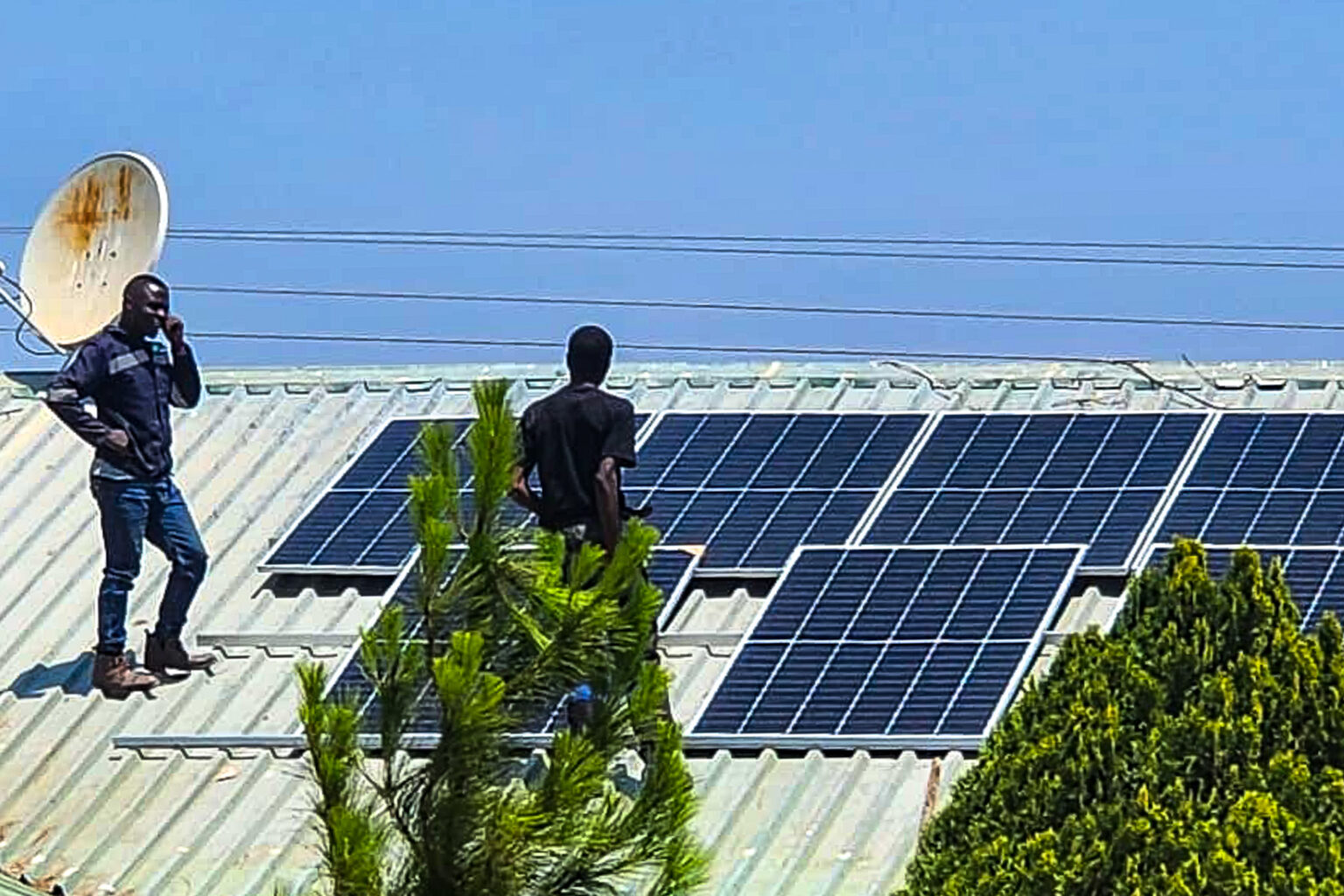
Solar power system enables community activities. NEW ROCHELLE, NY (Nov.17, 2025) Salesian missionaries at the Don Bosco Community in Mansa, Zambia, recently installed a solar power system thanks to donor funding from Salesian Miss
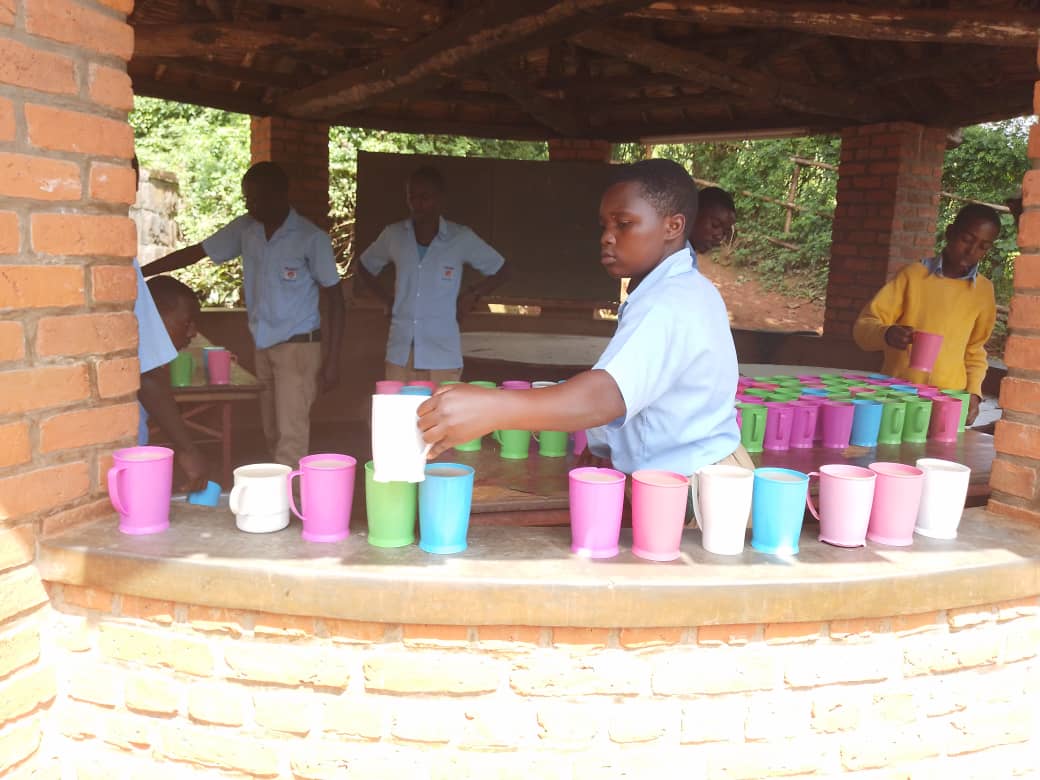
Day established by Pope Francis in 2016. NEW ROCHELLE, NY (Nov. 16, 2025) Salesian Missions, the U.S. development arm of the Salesians of Don Bosco, joins Catholic organizations around the globe in honoring World Day of the Poor.
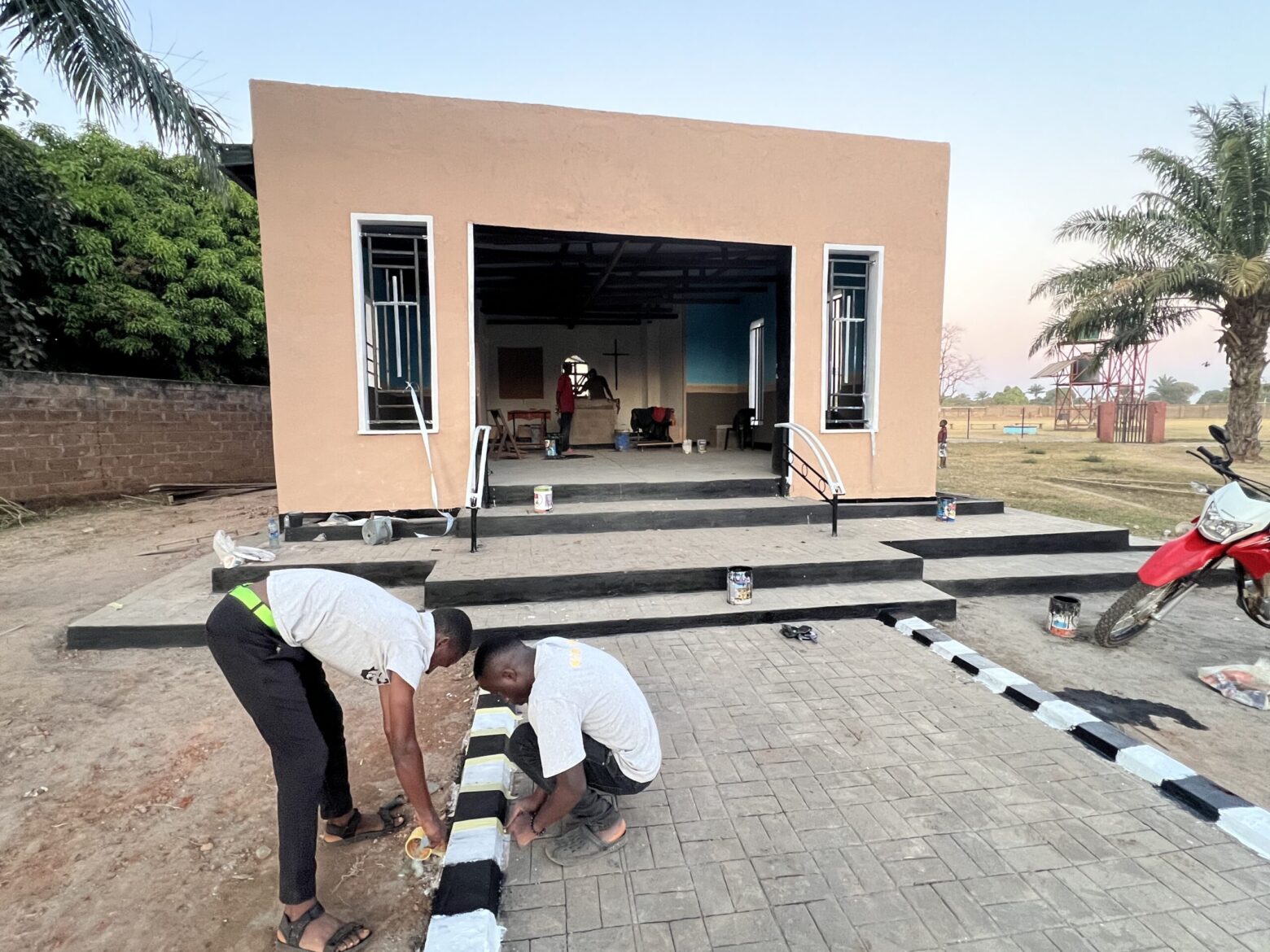
Grotto improvements help accommodate parishioners. NEW ROCHELLE, NY (Oct. 21, 2025) St. John Bosco Church in Kazembe, Zambia, has completed construction and repairs of a grotto thanks to donor funding from Salesian Missions, the U
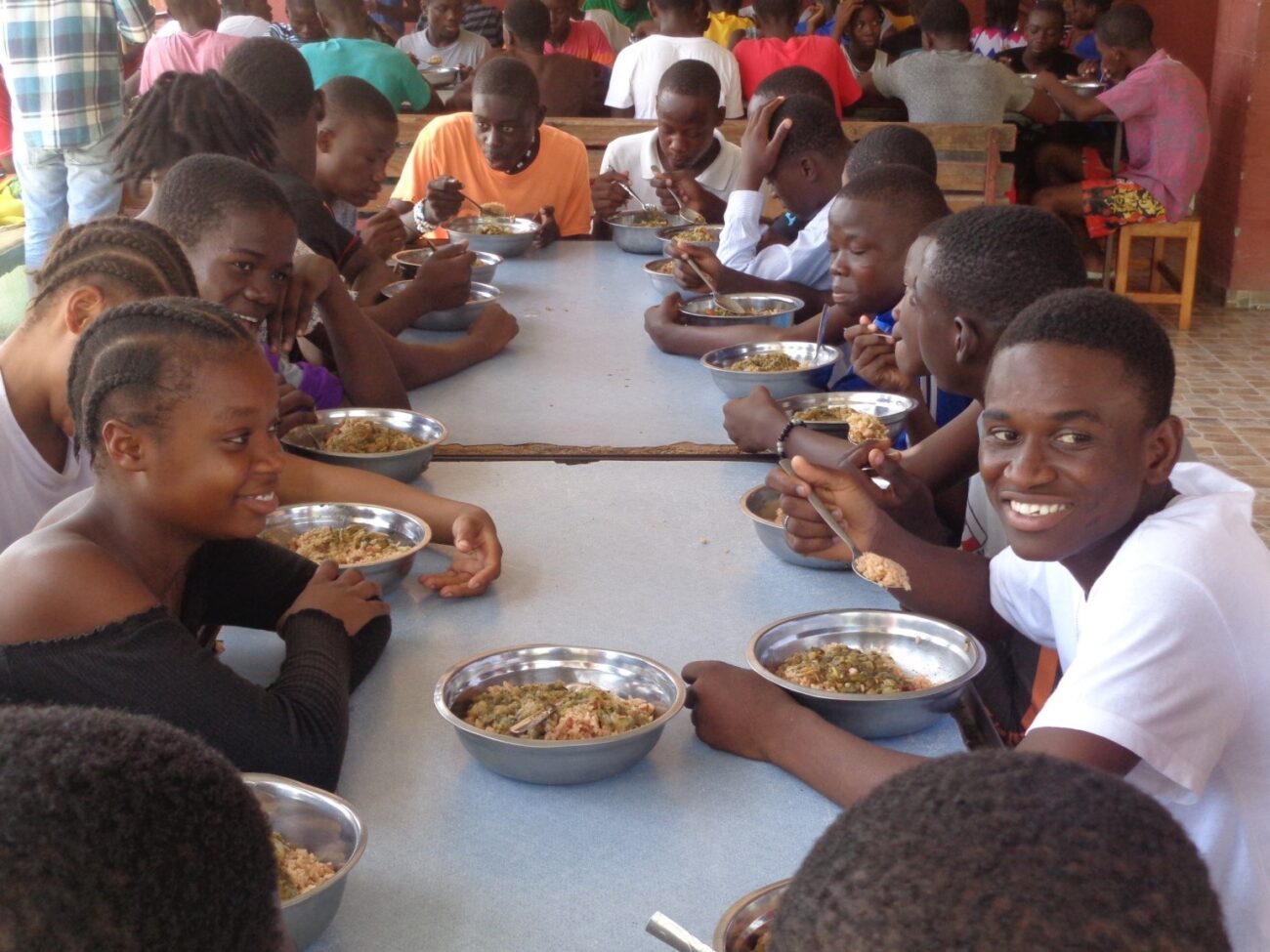
Feeding programs essential part of many Salesian schools, centers. NEW ROCHELLE, NY (Oct. 16, 2025) Salesian Missions, the U.S. development arm of the Salesians of Don Bosco, joins the international community and organizations aro
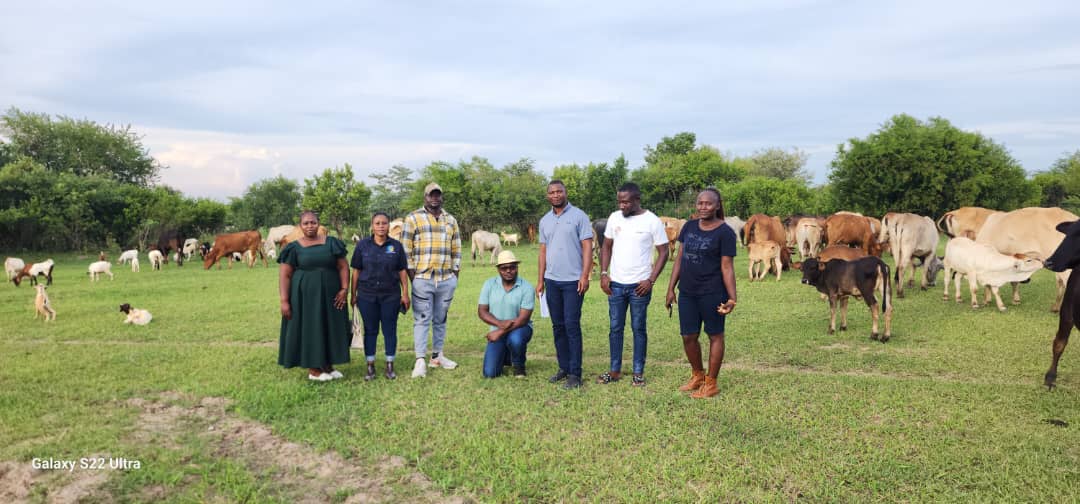
Salesians work to empower rural women, ensure access to education. NEW ROCHELLE, NY (Oct. 15, 2025) Salesian Missions, the U.S. development arm of the Salesians of Don Bosco, joins humanitarian organizations and countries around t
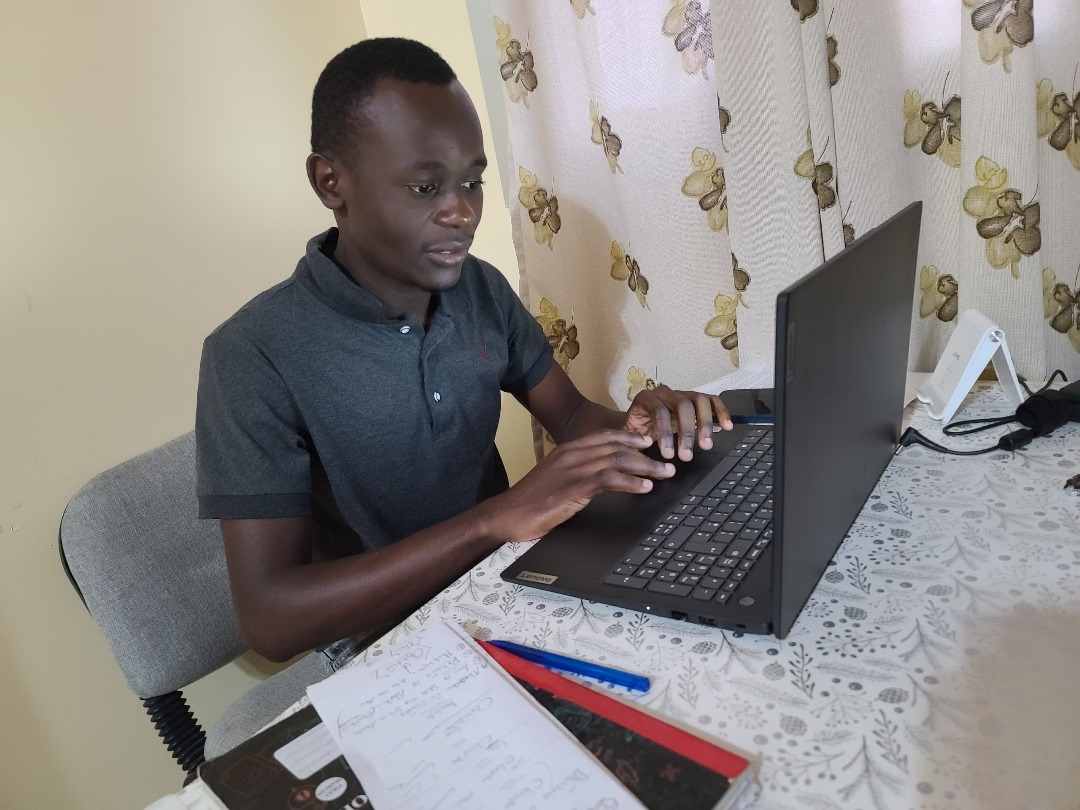
2025 theme focuses on ‘Promoting literacy in the digital era’. NEW ROCHELLE, NY (Sept. 8, 2025) Salesian Missions, the U.S. development arm of the Salesians of Don Bosco, joins humanitarian organizations and countries around t

Sessions include focus on child protection. NEW ROCHELLE, NY (Aug. 11, 2025) Salesian missionaries in Kabwe, Zambia, had the funding for pastoral programs for young adults thanks to donor funding from Salesian Missions, the U.S. d
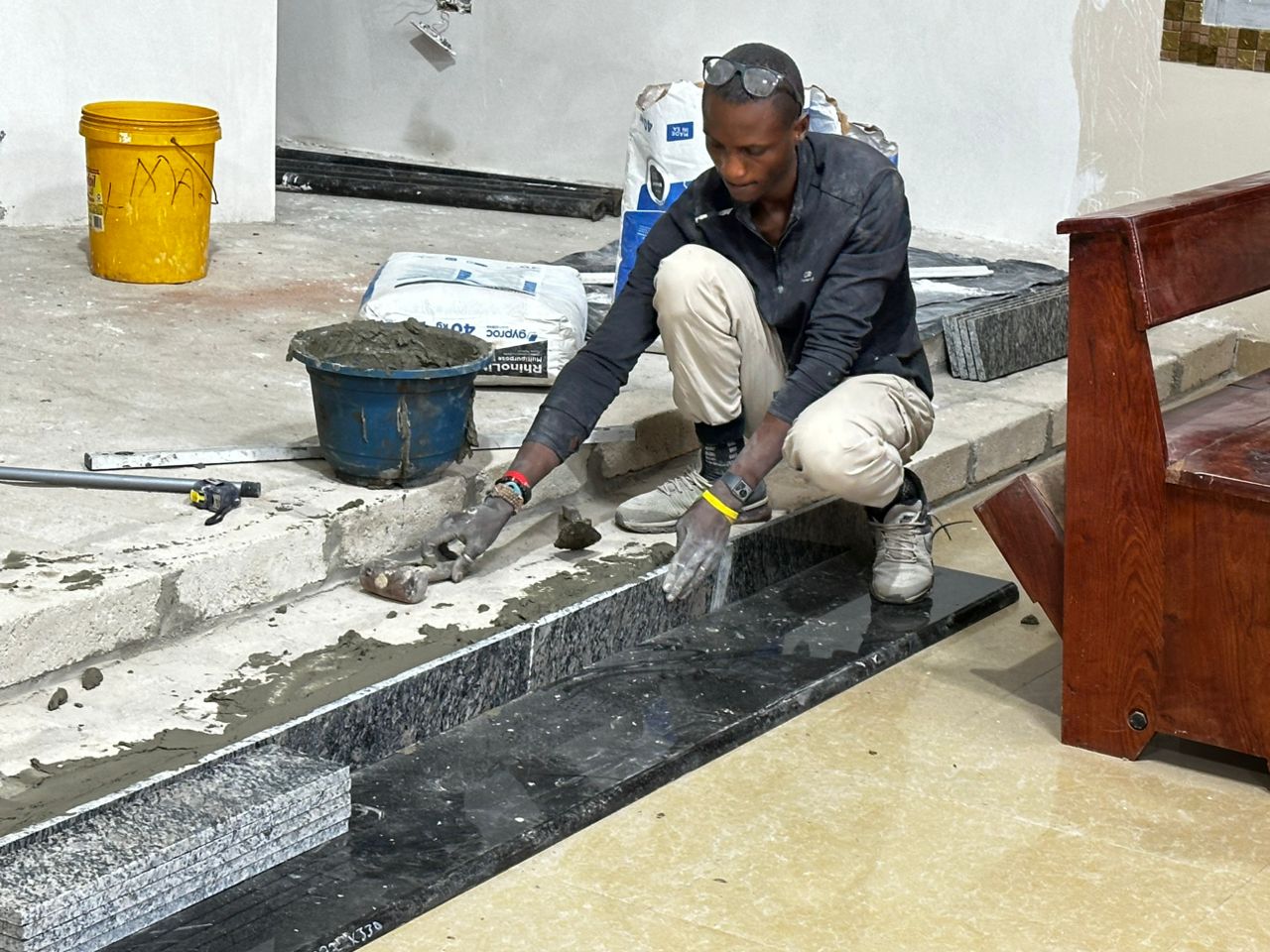
More than 50 Salesians and 200 youth use chapel. NEW ROCHELLE, NY (Aug. 4, 2025) Salesian missionaries were able to improve and furnish the chapel at Don Bosco in the Sacred Heart of Jesus post-novitiate community in Zambia thanks
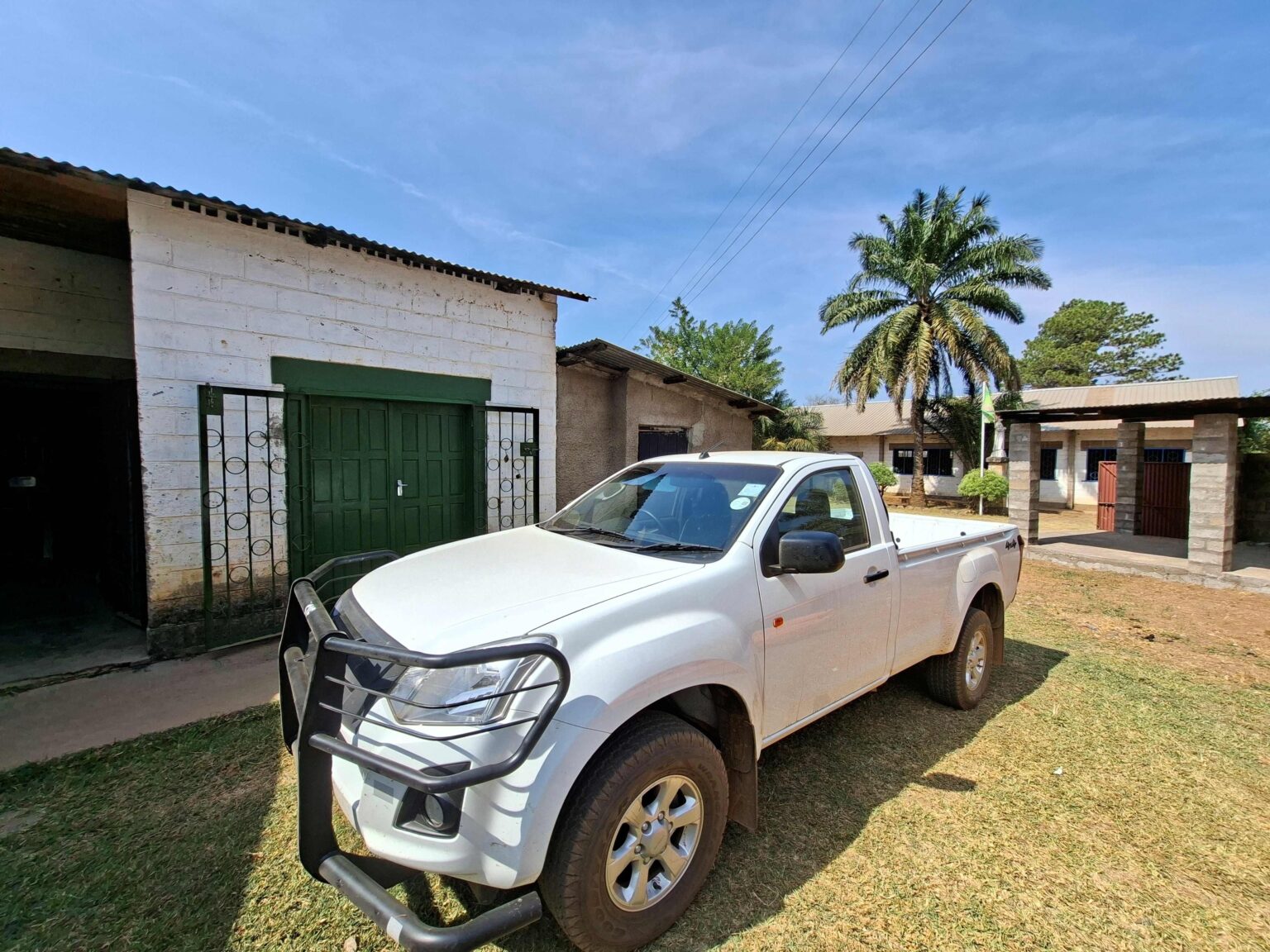
Students benefit from reliable transportation at school. NEW ROCHELLE, NY (July 29, 2025) Bosco Carpentry School in Kazembe, Zambia, purchased a new car thanks to donor funding from Salesian Missions, the U.S. development arm of t
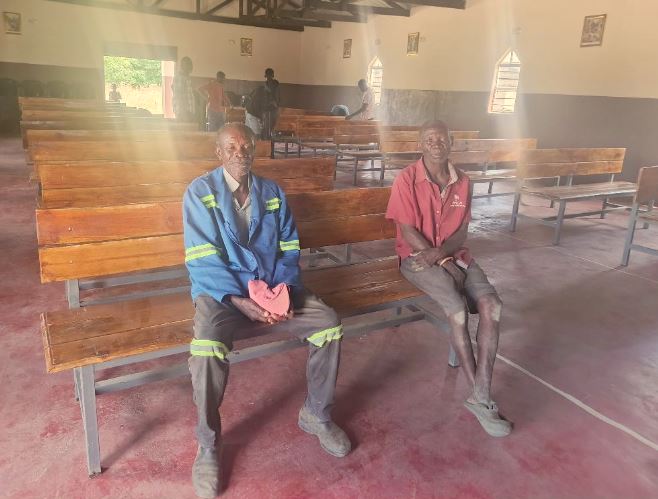
New seating brings dignity, comfort to people in 3 churches. NEW ROCHELLE, N.Y. (June 23, 2025) Salesian missionaries were able to add benches for three out-station churches that are part of the St. Mary’s Parish in Zambia, than
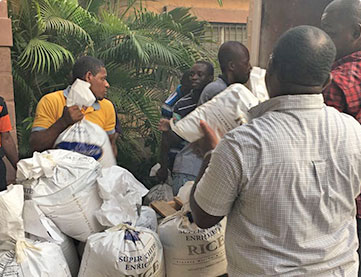
Salesian Missions includes agriculture in its vocational training programs – to ensure that youth of Rwanda learn better agricultural practices as well as keep the school self-sustaining in the face of the country’s food shortages.
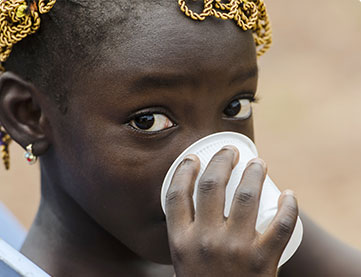
Salesian Missions includes agriculture in its vocational training programs – to ensure that youth of Rwanda learn better agricultural practices as well as keep the school self-sustaining in the face of the country’s food shortages.
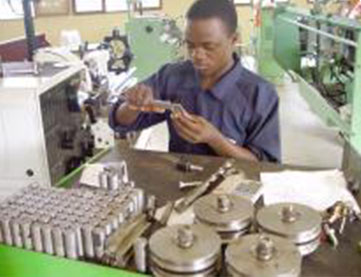
Salesian Missions includes agriculture in its vocational training programs – to ensure that youth of Rwanda learn better agricultural practices as well as keep the school self-sustaining in the face of the country’s food shortages.